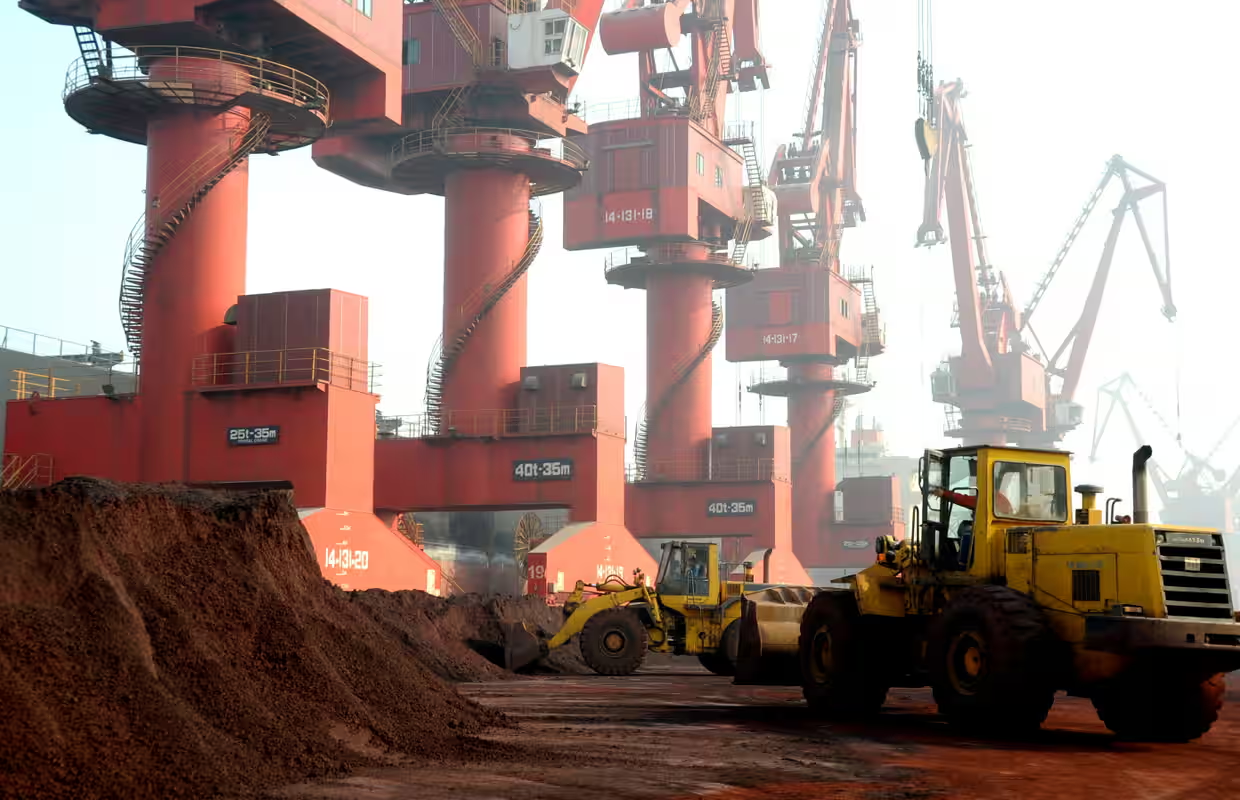
By Lisa O’Carroll. Media: Theguardian
The US and China have extended the truce in their trade war after two days of talks in London that resulted in a “framework” deal over export restrictions on rare earths and semiconductors.
Negotiations to resolve the wider tariff war triggered by Donald Trump in April will continue but the truce settles, for now, growing tension between the two economic super-powers.
The talks, which broke up at about midnight UK time after more than 20 hours of discussions over two days, were led by the Treasury secretary, Scott Bessent, alongside the US commerce secretary, Howard Lutnick, and the trade representative, Jamieson Greer.
Lutnick expressed optimism on Tuesday that concerns about critical or rare earth” minerals and magnets, which are vital to a range of industries including cars, electronics and defence, would be resolved as the deal was implemented.
The wider dispute, triggered by Trump’s decision to impose triple-digit tariffs on Chinese imports in April – since eased to a baseline 30% – has yet to be resolved with China’s exports to the US plunging 35% year on year in May.
Both sides had accused each other of reneging on a preliminary trade deal struck in Geneva last month to ease retaliatory tariffs, with China putting restrictions on exports of rare earths and the US continuing curbs on semiconductor exports.
But the trade war has already caused damage on both sides, whatever the positioning and rhetoric. China’s exports to the US plunged 35% year on year in May.
The choked global supply of rare earths, which China controls, was already threatening to halt production in the automotive sector this summer on both sides of the Atlantic, with permanent magnets used in everything from windscreen wipers to doors.
China’s delegation was headed up by the vice-premier He Lifeng – a seasoned negotiator at the top of the Chinese government who had also led talks in Geneva.
Lutnick told reporters that Tuesday’s framework put “meat on the bones” of the Geneva deal. Its implementation had faltered over China’s curbs on critical mineral exports. The deal also would remove some US export restrictions that were recently put in place, Lutnick said.
“We have reached a framework to implement the Geneva consensus and the call between the two presidents,” Lutnick said. “The idea is we’re going to go back and speak to President Trump and make sure he approves it. They’re going to go back and speak to President Xi and make sure he approves it, and if that is approved, we will then implement the framework.”
In a separate briefing, China’s vice commerce minister Li Chenggang said a trade framework had been reached that would be taken back to US and Chinese leaders.
There was a cautious welcome from investors and analysts. “At least now there’s a bottom line that neither side is willing to cross,” said Mark Dong, a co-founder of Minority Asset Management in Hong Kong.
Deutsche Bank’s note to clients on Wednesday was more sceptical. “So while the mood music has stayed positive, investors may be wary of the pattern that emerged during the previous US-China trade talks in 2018-19, when apparently constructive in-person meetings seemed to take a step back as the negotiating teams returned to their capitals.”
Lutnick said China’s restrictions on exports of critical minerals and magnets to the US would be resolved as a “fundamental” part of the framework agreement. “Also, there were a number of measures the United States of America put on when those rare earths were not coming,” Lutnick said. “You should expect those to come off, sort of as President Trump said, in a balanced way.”
Li said: “Our communication has been very professional, rational, in-depth and candid.”
Reuters and Agence France-Presse contributed to this report
There is a lot at stake
The world’s most powerful man is using his office to punish journalistic organisations that won’t follow his orders or who report critically on his policies. Donald Trump’s actions against the press include bans, lawsuits and hand-picking his own pool of reporters.
But the global threat against the press is bigger than just Trump.
Economic and authoritarian forces around the globe are challenging journalists’ ability to report. An independent press, one that those in power can’t simply overrule, is crucial to democracy. Figures such as Trump and Hungary’s Viktor Orbán want to crush it through exclusion and influence.
The Guardian is a global news organisation that will stand up to attacks on the free press. We have no interest serving those with immense power or immense wealth.
We are owned by an independent trust devoted only to protecting and defending our journalism. That means we don’t have a billionaire owner dictating what our reporters can cover or what opinions our columnists can have, or shareholders demanding a quick return.
The global situation is shifting hour by hour, making this an extremely challenging moment. It will take brave, well-funded, committed, quality journalism to call out what is happening.
Our job is to make sure we do not get overwhelmed as Trump floods the zone. We must focus on the stories that will make the biggest impact on people’s lives, while holding the powerful to account. We’ll also continue to focus on the ideas people need to create a better world: a reason for hope.
As the writer and Guardian columnist Rebecca Solnit says: “authentic hope requires clarity … and imagination”.
The Guardian can provide both and, with the help of readers like you in Peru, we can drive hope by reporting truthfully on what is happening and never pulling our punches.
A lot is at stake.




























































































Discussion about this post